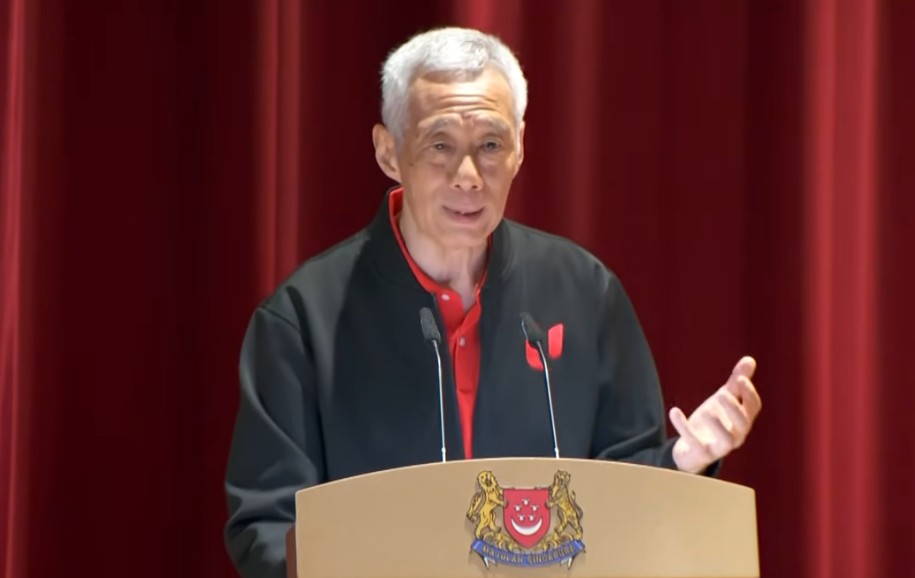SINGAPORE – In a major policy address on Monday, Singapore’s Senior Minister and former Prime Minister Lee Hsien Loong warned that the country can no longer count on a stable and cooperative global trading system, citing profound shifts triggered by sweeping U.S. tariffs and intensifying geopolitical tensions.
Speaking at the National Trades Union Congress (NTUC) Centre ahead of a closed-door dialogue with nearly 500 union leaders, Mr Lee described a world entering a more fragmented, uncertain, and less friendly era of global trade. His remarks come just hours after the Singaporean government officially downgraded its 2025 GDP growth forecast from 1–3% to 0–2%, explicitly linking the revision to the ripple effects of new U.S. trade barriers.
A New Global Reality: “We Must Adapt”
Mr Lee emphasized that Singaporeans must come to terms with this new reality. “Unlike previous crises, we can no longer simply fit into a ‘working’ global system. That system is fraying,” he said. “We face a very different world in the next five to ten years — less cooperative, more protectionist, and more volatile.”
He urged citizens and institutions alike to remain vigilant, pragmatic, and united in responding to these challenges: “I hope Singaporeans understand what is happening, what is at stake, and what we must do together to secure our future.”
Recession Possible, Growth Likely to Slow
While Mr Lee noted that a recession in 2025 remains unlikely, he cautioned that it is “not out of the question” in the near term. “We must expect lower growth this year and a possible recession further down the road,” he said, highlighting that the economic fallout from U.S.-China tensions and reduced global demand would have serious implications for Singapore’s export-driven economy.
The revised GDP forecast, announced earlier in the day by Singapore’s Ministry of Trade and Industry, reflects growing concerns over weakening global trade flows, particularly after the U.S. introduced a blanket 10% tariff on imports, with higher rates for countries with large trade surpluses — many of which are Asian.
Navigating Between Giants
Mr Lee also spoke candidly about the deepening rift between the U.S. and China, warning that Singapore — a close economic partner to both — must skillfully navigate its relationships. “We must expect more US-China tensions, and therefore a less tranquil, a less stable region. There will be more demands on us to work very hard to be friends with both, and to find our own way forward without getting into trouble,” he said.
Unity and Realism Over Complacency
While some may argue that Singapore has overcome bigger storms before, Mr Lee stressed that “something important is different this time.” He cautioned against complacency: “Yes, we’ve succeeded in weathering past crises. But that doesn’t mean we can take this lightly. We must be clear-eyed about the challenges and realistic about what it will take to adapt.”
He called for close cooperation between the government, unions, and businesses to sustain jobs, boost competitiveness, and reinforce Singapore’s international partnerships.
Looking Ahead
Mr Lee’s address marks one of the clearest acknowledgments yet by Singapore’s leadership of the long-term risks posed by growing protectionism in global trade. As the region responds to a changing economic landscape, his speech sets the tone for a broader national conversation on economic strategy, social resilience, and geopolitical balance. (zai)

